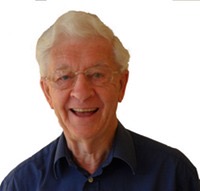
When we turn the page from Exodus 24 to 25 we cross a chasm of several hundred years. In the one we are still in the wilderness with Moses on Sinai. In the other, though still with Moses, we are constructing the Tabernacle with a wholesale clarification of worship and liturgy, and are left wondering how all this could be happening in the world we have just been living in. What we have here is one book with two major sources, one going back to the wilderness era, the other reflecting the period (c6th-5th centuries BCE) when the Jews were returning from Babylon and seeking to build a new framework of faith and worship: a new identity for a new community.
Exodus as we know it dates from the latter period, its writers/compilers, children of a post-exilic community emerging in an era of rapid social change. How did it look to them and what did they consider to be important? The compilers seem to be trying to do two things One, to link current developments with their history (Moses and those who came out of Egypt) in a constant and continuing relationship with Yahweh. The other, to respect and preserve those traditions in a new context by re-applying older traditions to provide insight in a changed situation with a view to a restoration of both faith and community where they now found themselves. With that background chapters 25-40 may be seen as putting down markers: Focal Points of Faith.
On a superficial reading it would be easy to dismiss much of these chapters as having little if anything to do with us but God’s word always has something to say once we take time to listen, to see and to think. With that in mind we have two ways in. One, to imagine ourselves in a similar contemporary situation; the other, to find a community going through a similar experience and to read the text through their eyes. Either way we need to remove a layer or two from the details and clarify the underlying significance, never forgetting that Focal Points of Faith are just that: Focal Points — not the Faith — and appreciating theirs may be one step towards a greater understanding of our own.